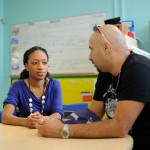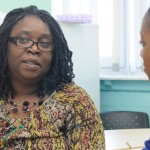What Does An Educational Psychologist Do?
Inner Circles works with learners from 0-19 in schools and post-16 adult learners in FE colleges.
Whatever their age, we understand that it is difficult to engage all students in learning at all times. We also understand that it is important for your learners to do their best in order to produce high quality grades. Fully understanding your students’ barriers to learning will help you to plan more effectively.
An educational psychologist (EP) can help you to think through the ‘problem situations’ experienced by a learner and generate a clear and comprehensive action plan to improve the situation. This plan may include actions by the learner themselves, parents/carers, school/college staff and the EP (through assessment and information gathering).
Schools and FE Colleges can commission an educational psychologist to support them:
- as a link EP to provide an allocation of a number of days per term, which can be used to cover a range of tasks, including consultation, assessment, interventions (including staff training) and review
Or
- For one off pieces of work.
Assessment
Work with and around a learner, where information is collated about the individual and analysed. This could be through the use of a standardised tool and/or observation. Assessments can be for exam access arrangements, as requested by schools and colleges, to qualify learners for additional time in their exams.
Intervention
Developing and running evidence-informed individual or group interventions for learners, e.g. social skills groups; solution-focused motivational work.
Where a more flexible ongoing support approach is required, use of individual coaching or group Staff Sharing is offered over an agreed length of time. These approaches are particularly useful for supporting staff in working with learners who present with challenging behaviour or complex needs.
Training (INSET)
Working with staff or parents to raise awareness and develop skills in working effectively with children and young people, including those with particular additional needs such as Autistic Spectrum Conditions, ADHD, behavioural emotional and social difficulties and dyslexia.









